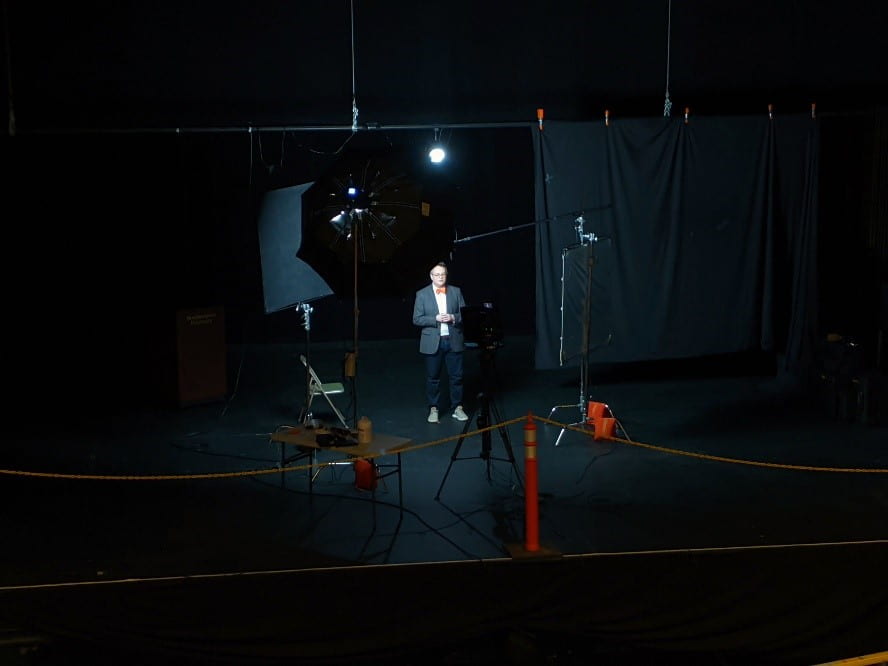Since the start of the online format of the MSL program, we have been adding new courses each year; for the upcoming spring semester, we have added four new classes to the online curriculum. These courses include two electives that have traditionally been offered in the residential format and will now be offered for the first time in the online format – Business Combinations and Entrepreneurial Finance & Venture Capital – and two electives that are brand new to the MSL curriculum – Global Transactions & Compliance and Tax Policy.
The process for developing online courses is extensive and requires a complete restructuring of the traditional teaching model. Professors work closely with the MSL’s “Learning Engineer,” Alyssa Dyar, to explore the goals of their course and identify which elements benefit most from live interactions (synchronous sessions), and which can be offered asynchronously for students to complete on their own time. Over the course of several months, faculty script and film lecture videos, develop interactive knowledge checks and learning activities, and identify a range of materials to support the learning goals of the course (readings, podcasts, videos, etc.). Classes employ both individual and group work, practice problems, hypotheticals, the opportunity to work through real-world scenarios, guest speakers, discussion boards and many other components. It usually takes a faculty member about 100-200 hours to develop an online course; in addition, the Learning Engineer, the film crew, and the editing/post-production team spend considerable time polishing up each class.
Read on for a description of the Spring semester’s new courses.
SPRING 1

While we were unable to record Professor Reed’s videos in the regular film studio due to social-distancing guidelines, Professor Reed’s videos were filmed in a large auditorium, with the film crew located way up in the audio booth. The result is the same high-quality lecture videos we have in all of our online courses, sprinkled with Professor Reed’s energetic humor.
Business Combinations, taught by Professor Steve Reed, focuses on mergers and acquisitions from both a business and a legal perspective. The course looks at the practical aspects of business transactions, from the initial motivations for business combinations and continuing through due diligence, negotiating the deal, and working towards the successful post-deal integration of management and operations. Throughout the course, students are exposed to real-world deal documents and they learn about the different skills they will need, and roles they may serve, in acquisition transactions.
Professor Reed regularly teaches in the JD and MSL programs at Northwestern, and he is also an experienced online format teacher – he teaches the required Business Formation class in the MSL online format, and he’s also taught a giant MOOC on Entrepreneurship Law (with Professor Esther Barron). He’s pretty good at this!
SPRING 2
Entrepreneurial Finance & Venture Capital, taught by Professors Esther Barron and Darren Green, focuses on the business and legal issues that professionals face when working for or with companies that are raising funds for a new venture. In addition, the course explores negotiation strategies during Seed Round or Series A financing, relevant provisions in a typical term sheet, and the role of the Board of Directors within growth businesses. Both of these professors (Barron and Green) regularly teach in the MSL and JD programs; they are also experienced online instructors — Professor Barron teaches Entrepreneurship Law in the online format, and she also co-taught the above-mentioned MOOC with Professor Reed. Professor Green teaches Advanced Contracts in the MSL online format.
Global Transactions & Compliance, taught by adjunct Professor Shermin Kruse, examines the business, legal, and ethical issues that arise when commercial transactions cross national borders, as in today’s global economy, they almost always do. Subjects include: the political, legal, and cultural frameworks of jurisdictions outside of the United States; global macro-economic institutions; international taxation; anticorruption and fraud prevention; cyber security; anti-money laundering/terrorist financing; as well as ethical and organizational decision-making and leadership. In addition, the class incorporates perspectives from guest speakers, who provide a range of in-depth experience with the subject matter.
Professor Kruse brings a wealth of knowledge in cross-cultural mediation, with experience as a consultant, law partner, and negotiator, as well as a TEDx speaker and author. She is a director of the ACLU of Illinois, co-founder of the peace organization Pasfarda Arts and Culture Exchange, and a director of the international refugee center Heshima Kenya. She teaches a course in Cross-Border Transactions in the JD program at Northwestern Law.

Professor Lawsky’s lecture videos include in-video quizzing, giving students the opportunity to test their knowledge on the spot before moving on to more complex topics.
Tax Policy, taught by Associate Dean and Professor Sarah Lawsky, considers fundamental tax policy concepts and how to use those concepts to analyze law and social policy, with a focus on issues of distributive justice. Topics include theories of equity and distributive justice; the relative advantages and disadvantages of an income tax as compared to a consumption tax; economic efficiency; tax expenditures; and tax compliance and enforcement. Professor Lawsky teaches Federal Income Taxation in the MSL online program, as well as a host of JD classes focused on tax issues.
Many classes in the MSL are offered in both the online and residential formats, but some courses are exclusively offered in one format or another. The MSL Program Rules allow students to cross over; online students who are able often take residential classes, and residential students often take online courses. The addition of so many excellent online courses has created additional choices for MSL students, and has allowed more interaction between online and residential students, which has greatly enhanced the MSL program!






